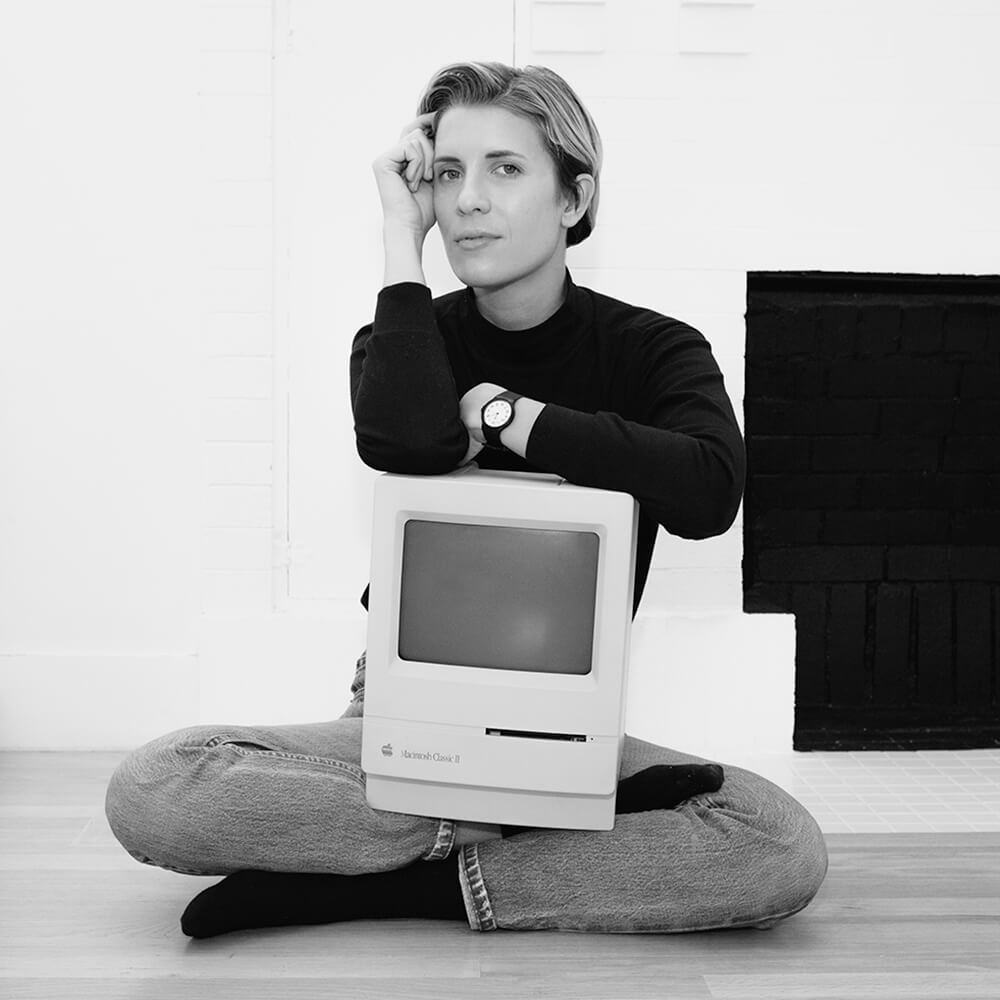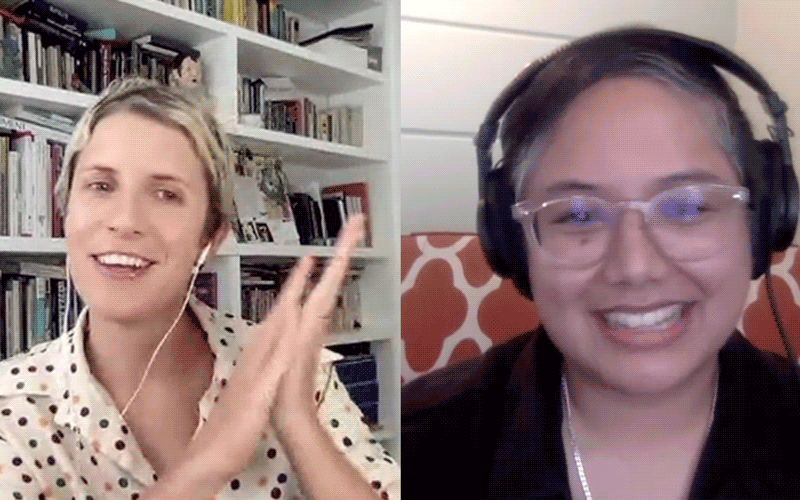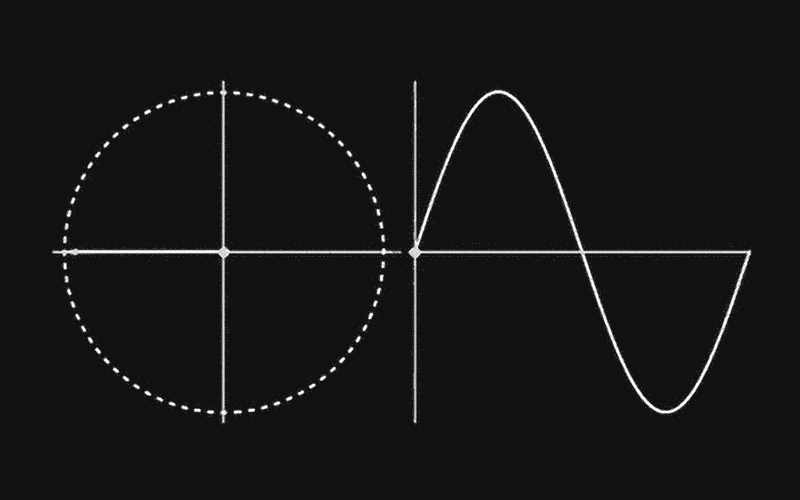MUTEK Recorder: A Memory Palace
“Transcribing, translating, and free-associating live—there was no time to sit with our thoughts. We were forced to reflect as we went, in God mode, getting it all down for posterity. A syndrome I called documentia.”
Claire L. Evans is a writer and musician based in Los Angeles. She is the singer and coauthor of the Grammy-nominated pop group YACHT, and the founding editor of Terraform, VICE‘s science-fiction vertical. She is also the former futures editor of Motherboard, and a contributor to VICE, Rhizome, The Guardian, and many other publications. Her 2018 book, Broad Band, tells the history of the female visionaries at the vanguard of technology and innovation.
For two weeks we lived the MUTEK Forum, documenting talks, roundtables, and workshops in real time. I’ll spare you our big takeaways from the Forum itself—the palpable excitement about decentralization, the collective desire to reframe artificial intelligence as tool and collaborator, or the eternal tension between the humanities and the sciences—as these are all contained in our sprawling dossier, in the form of soundbites and learnings. Instead I want to focus on the act of recording itself.
The MUTEK Recorder was a real-time publishing experiment. We worked under the watchful eye of the clock: up first thing in the morning and right into the thick of it, transcribing, translating, and free-associating live, synthesizing disparate conversations in time for an afternoon broadcast. There was no time to sit with our thoughts; we were forced to reflect as we went, in God mode, getting it all down for posterity. For something that required total presence, it was oddly dissociative. We were in the moment, at a distance. Jokingly, I called our syndrome documentia.
In his opening keynote, Benjamin Bratton cited Derrida: “the archive is a promise to the future that the present time will make itself accountable,” he said. “It can also be a technology to ensure that the future is even possible in the first place.” I wonder if our work recording MUTEK is quite the same as an archive. By virtue of how quickly we worked, we could never claim to have produced something so complete. And our small group, each of us guided by of our own interests, interpreted the Forum’s conversations subjectively.
I couldn’t help but spin up anecdotes from my own research, for example, or pull references from my library shelves. The practice of recording in this way became self-reflexive. A panel about sound intensity in electronic music awoke my tinnitus, reminding me of the obliterating drone of a NASCAR race; a conversation about procedural game maps conjured the time, years ago, that a friend and I tried to swim across the ocean in Grand Theft Auto V.
“The practice of recording in this way became self-reflexive. A panel about sound intensity in electronic music awoke my tinnitus, a conversation about procedural game maps conjured the time that I tried to swim across the ocean in Grand Theft Auto V.”
Maybe what we produced was not an archive at all, but a memory palace. The Romans called it the “method of loci,” of places: to remember things, imagine them in the rooms of a house you know well, then wander its halls, recalling. Roman orators would prepare long speeches in the rooms of imagined houses; each orator had their own memory palace, an empty architecture that could be filled and filled again with new ideas. In the modern world, we have little need for such techniques, which emerged before writing. But the mechanism retains its archaic power.
The Romans enlisted their greatest technology, architecture, in the service of memory; perhaps our virtual architecture—a dossier, embedded on the World Wide Web—could do the same. I might wander these rooms in a year and remember the conversations that echoed within, which in turn may invite their own memories, their own interpretations. I might also find new tenants in their place: the foundations of the Web are never solid.
Of course, there are other, fine approaches. Our guests were generous enough to share a few: Mindy Seu builds archives, Xiaowei Wang uses recipes to record in the field, and Tim Maughan captures the present in science fiction stories. We all have our tools for thinking, each with their own shape. Perhaps by including all of these approaches, our Recorder was something more like a toolbox—a collection of strategies, suited to different applications, stress-tested and ready to work. Perhaps the mark of a successful project is how well it resists being defined by such neat metaphors.
“Maybe what we produced was not an archive at all, but a memory palace. I might wander these rooms in a year and recall the conversations that echoed within, which in turn may invite their own memories, their own interpretations.”
MUTEK Recorder
MUTEK RecorderExplore more of "MUTEK Recorder:"
→ HOLO.mg/stream/
→ HOLO.mg/mutek-recorder/
Claire L. Evans
Claire L. Evans is a Los Angeles-based writer and musician exploring ecology, technology, and culture. She is the author of Broad Band: The Untold Story of the Women Who Made the Internet (2018) and the singer of the Grammy-nominated pop group YACHT. A prolific essayist, her writing has recently appeared in outlets including GROW, MIT Technology Review, and The Verge.



